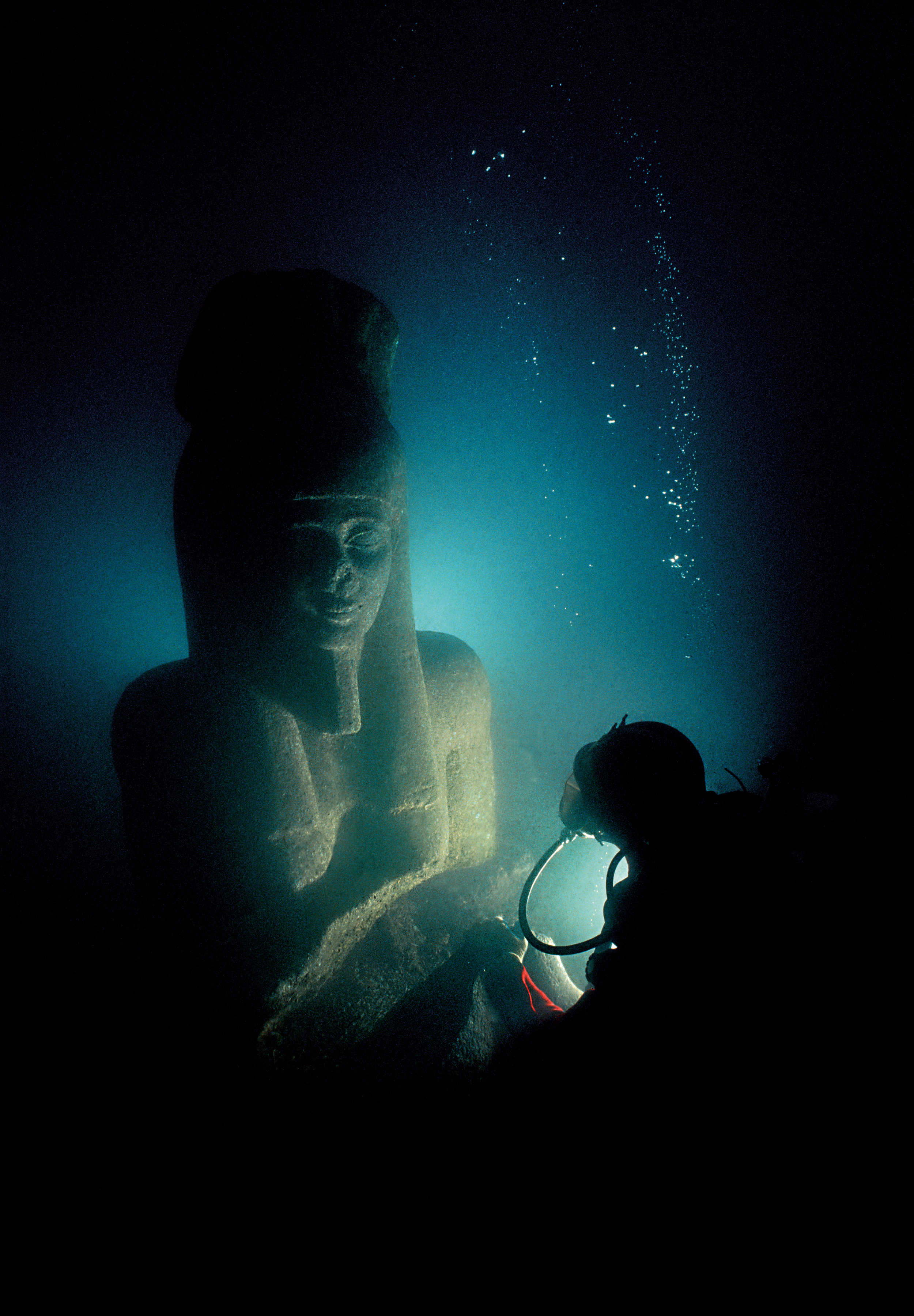It is not every day that you get to uncover a legend, 1,200 years old.
The ancient city of Heracleion was believed to be the stuff of legend, much like the fabled city of Atlantis. Ancient texts told of a city of fabulous wealth. Before Alexandria was founded, Heracleion was the main port of entry for all ships coming from the Greek world. It was from here that goods flowed into and out of Egypt.
Unfortunately, Heracleion was built on shaky ground. Gradual subsidence and then violent earthquakes saw the city totally swallowed by the Mediterranean in the 8th century AD, seemingly lost to history.
That was until the year 2000, when French archaeologist Franck Goddio discovered the fabled city underwater; 6.5 km off today’s coastline in Aboukir Bay.
Now a new exhibition celebrates the incredible discovery of a city that sank beneath the waves 1200 years ago. The exhibition, ‘Osiris, Egypt’s Sunken Mysteries’, is being held in Paris until 31st January 2016. After that it is set to tour for two years around Europe, including London and Berlin.
250 objects from years of underwater excavations by Franck Goddio, are included in this exhibition at the Arab World Institute. Seeing how many have only been recovered from the floor of the Mediterranean in the past few years, this is the first time the artefacts have been on display since they sunk centuries ago. Added to these are 40 artefacts from the museums in Cairo and Alexandra, some of which come out of Egypt for the first time.
A special feature in the current issue of Nile Magazine showcases some of the amazing treasures Franck Goddio has discovered on the sea bed, among the sunken ruins of Heracleion.
In the end, Heracleion did have something in common with Atlantis: their fates were both sealed as they sank beneath the waves.
Pictured is a statue of Hapi, god of the Nile, emerging from the underwater gloom. This colossal statue (over 5 metres tall), decorated the great temple of ancient Heracleion. Never before has the statue of a god of this size been discovered in Egypt, which indicates Hapi’s importancefor the Canopic branch, the largest and most important of the Nile branches at that time.
Photo by Christoph Gerigk. Copyright Franck Goddio / Hilti Foundation.
Click here to subscribe to Nile Magazine and read the full account of Heracleion's disappearance and amazing rediscovery, along with full-colour pictures of the artefacts now on show in Paris.
